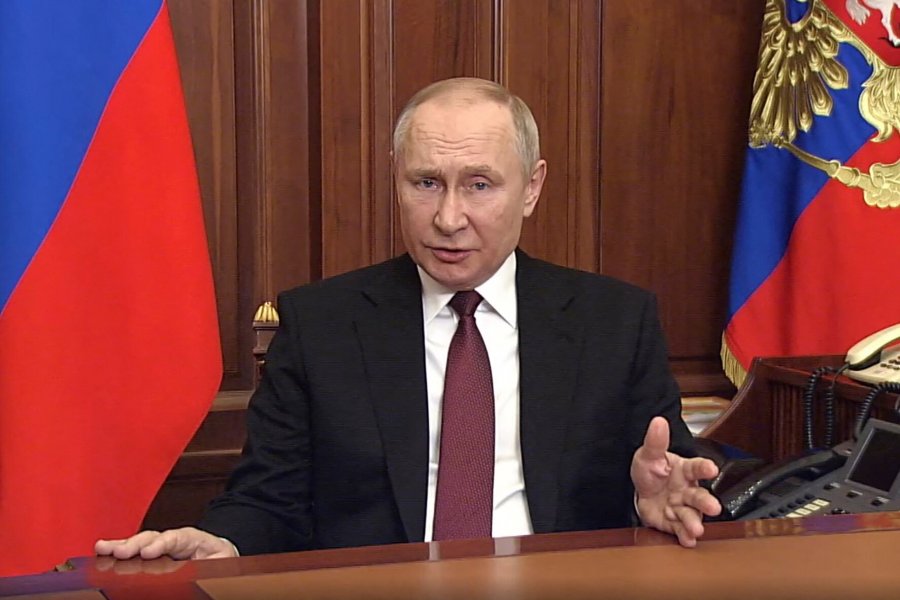
Several EU countries, the United Kingdom and Ukraine have moved closer to creating a special tribunal aimed at ensuring accountability for Russia’s war of aggression against Ukraine. The tribunal will fill a critical void, since the International Criminal Court only has the jurisdiction to investigate war crimes, crimes against humanity and genocide, with no international court currently able to investigate and prosecute for the fourth international crime – the crime of aggression. According to the ICC’s Rome Statute, this refers to the use of armed force by a State against the sovereignty, territorial integrity or political independence of another State, or in any other manner inconsistent with the Charter of the United Nations. Those who launch or plan such crimes of aggression must wield power, and it is typically the leaders of a country who would be accused of such a crime. It is they who facilitated the decision to invade and the accompanying military action and it is vital that they are held to answer. The creation of such a tribunal will not, however, bring the day any closer that the main perpetrators, and specifically Russian leader Vladimir Putin, are brought to justice. While in office, Putin. Russian foreign minister Sergei Lavrov and prime minister, Mikhail Mishustin, will not be put on trial, even in absentia.
The meeting of foreign ministers of the countries involved in Lviv on 8 May 2025 was carefully timed, coming on the 80th anniversary of victory over Nazi Germany and on the eve of Putin’s military parade in Red Square. It was no accident that the latter was attended by several dictators whose countries are actively providing military help for Russia’s war of aggression, as well as by some notoriously pro-Putin foreign leaders.
The Special Tribunal for the Crime of Aggression against Ukraine is envisaged as being within the framework of the Council of Europe, with the tribunal probably based at the Hague and beginning work as early as 2026. This is, however, no second Nuremberg Tribunal, with the chief differences constituting the main limitations on the Special Tribunal’s power. Unlike Nazi Germany, Russia has yet to be defeated, with it unlikely that the main perpetrators would be tried in person. Even without the apparent immunity from active judicial proceedings agreed in the case of Putin, Lavrov and Minushin, Russia would doubtless refuse to extradite, or in any way help to prosecute any of its citizens. In addition, the moves to create the special tribunal began when the United States was still supporting the initiative. The new administration under US President Donald Trump is clearly demonstrating a wish to reinstate relations with Russia. It has not been involved in the ‘core group’s’ preparations for the Tribunal. Since it also blocked or voted with Russia, Belarus and North Korea on a resolution condemning Russia’s war of aggression, so support for the Tribunal cannot be assumed.
Although important to articulate the indictments and present evidence, there are also obvious limitations when dealing with trials in absentia. All four men (three Russians and one pro-Russian Ukrainian militant) who were prosecuted in the Netherlands over their believed role in the downing by a Russian BUK missile of MH17 and killing of 298 passengers of crew were tried in absentia. Not one of the three life sentences passed has led to any arrest, with one of the men, Igor Girkin, currently imprisoned in Russia, not for his role in MH17 or other war crimes, but because of his criticism of the Kremlin and Russian military. Even the potential confiscation of assets that would follow a guilty verdict passed by the special tribunal would be unlikely to change very much. Most of the individuals likely to be put on trial have long been under international sanctions. This does not mean that they have no assets abroad, but it is likely they have found ways of hiding them. The restrictions with respect to Putin, Minushin and Lavrov, are linked with them remaining in office. At least in Putin’s case, it seems clear that he has no intention of ever voluntarily surrendering power, with the same probably true of Belarusian dictator Aleksandr Lukashenko, who should also come under Tribunal investigation. Such immunity from prosecution for the main perpetrators risks making the Special Tribunal even more toothless than the International Criminal Court. The latter’s Chief Prosecutor currently has arrest warrants out against Putin and his so-called ‘ombudsperson on children’ Maria Lvova-Belova, as well as against two high-ranking military commanders. This has restricted Putin’s travel, however the ICC proved powerless to do anything but protest when Putin made a state visit to Mongolia, an ICC member in 2024.
Even the process of creating the Special Tribunal is likely to be slow. The meeting on 8 May was essentially a valuable demonstration that the political will to create such a tribunal is there. Ukraine is now due to officially initiate the move at a meeting of the Council of Europe’s Committee of Ministers on 14 May. There will then be an agreement between the Council of Europe and Ukraine which Ukraine’s parliament will have to ratify. Since the participants will not only include European countries, there will need to be an extended agreement which all parties will then have to ratify.
None of this negates the importance of the steps finally taken toward creating a Special Tribunal which will, at least, ensure public examination of the crime of aggression and sentences, even if these are passed in absentia. It is also enormously important that so many democratic countries remain steadfast in their support for Ukraine and insistence that Russia must not be allowed to wage a war of aggression and commit other international crimes with impunity. It does, however, seem vital to ensure that the key perpetrators are not allowed to escape justice because of the positions that enabled them to launch mass crimes against Ukraine and its population.



